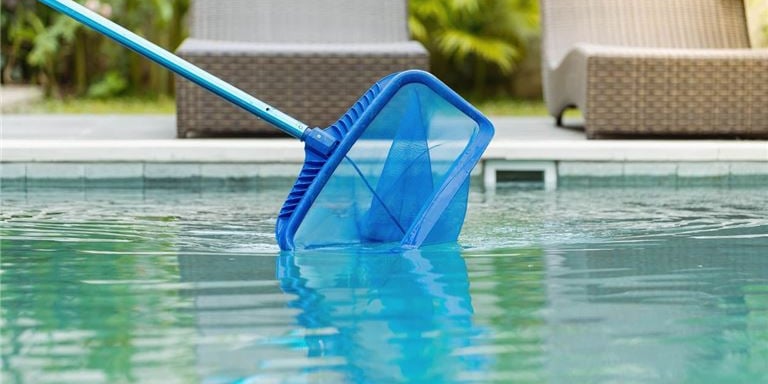Metrics that Matter - Pool Cleaning Services


Metrics That Matter: What Pool Cleaning Business Owners Need to Know Before Selling
In Florida, pool cleaning businesses have long been a steady, in-demand service thanks to the state’s warm climate, large number of residential pools, and growing vacation rental market. But when it comes time to sell your business, buyers are not just looking at how many pools you clean each week, they want to see financial stability, recurring revenue, licensing compliance, and operational structure.
Whether you're an owner-operator managing a route yourself or running a team of technicians across multiple counties, this guide will walk you through the key metrics that buyers evaluate, highlight Florida-specific considerations, and provide actionable advice on how to maximize your business's value before going to market.
Why Metrics Matter When Selling a Pool Cleaning Business
Buyers today are focused on data-driven decisions. That means you need to demonstrate not only that your company is busy, but also that it's:
Profitable - with strong margins and efficient operations.
Recurring revenue-based - not reliant on one-time cleanings or seasonal spikes.
Licensed and insured - especially for businesses offering chemical treatment or equipment repair in Florida.
Not dependent on the owner - scalable and able to run with minimal owner involvement.
The better your metrics, the more attractive your business becomes, and the more leverage you'll have in negotiations.
Florida’s Pool Cleaning Market: Why Buyers Are Interested
Why Florida?
Florida is a year-round pool state, with:
Over 1.4 million residential pools statewide.
A booming vacation rental and short-term rental market.
High temperatures and humidity driving demand for regular maintenance.
Who’s Buying?
Owner-operators looking to enter the industry with a pre-built route.
Established pool service companies expanding territory.
Private equity or home service roll-ups adding complementary services.
What Buyers Care About:
Number of accounts and contract types (residential, commercial, vacation rentals).
Recurring revenue from regular service routes.
Technician reliability and route structure.
Licensing and insurance compliance (Florida-specific requirements).
Efficiency and scalability.
Top Metrics Buyers Analyze in a Pool Cleaning Business
1. Number of Active Accounts (and Account Types)
What It Is: The number of pools currently being serviced on a weekly or bi-weekly basis.
Why It Matters: More accounts = more predictable revenue.
What Good Looks Like:
80–150+ active, contracted accounts with a diverse mix (residential, vacation rentals, commercial).
Red Flags:
Uncontracted, cash-only clients.
High customer turnover or seasonally inflated numbers.
2. Recurring Revenue from Service Contracts
What It Is: Monthly revenue generated from recurring pool cleaning services (not including repairs or one-offs).
Why It Matters: Buyers pay a premium for predictable, contractual income.
What Good Looks Like:
80%+ of revenue from recurring maintenance contracts.
Red Flags:
Most revenue from one-off cleanings, repairs, or seasonal services.
3. Route Density and Geographic Efficiency
What It Is: How efficiently accounts are grouped by location (minimizing drive time).
Why It Matters: Tighter routes reduce labor and fuel costs - boosting margins.
What Good Looks Like:
Dense, clustered routes that technicians can complete efficiently.
Red Flags:
Spread-out accounts with heavy drive time between jobs.
4. Gross Profit Margins
What It Is: Revenue minus direct costs (chemicals, labor, fuel, equipment).
Why It Matters: Margins show how well the business manages pricing and expenses.
What Good Looks Like:
50–60%+ gross profit margins on service routes.
Red Flags:
High chemical or fuel costs cutting into profits, underpriced accounts.
5. Licensing & Compliance (Florida-Specific)
What It Is: Proper licensing for handling pool chemicals and conducting equipment repairs.
Why It Matters: Florida regulates pool service work - buyers will walk away if you're not compliant.
What Good Looks Like:
Active Certified Pool/Spa Servicing Contractor License (CPC) for equipment repairs.
EPA and OSHA compliance for chemical handling.
Business registered with the Florida Department of Health if required for public/commercial pools.
Red Flags:
Performing repairs without proper licensing.
No liability or workers’ comp insurance.
6. Technician Reliability & Staffing Model
What It Is: The quality and stability of the service team.
Why It Matters: Buyers want a team that will stay on post-sale.
What Good Looks Like:
Reliable, trained technicians with clearly assigned routes.
Low turnover, clear hiring records.
Red Flags:
Over-reliance on untrained workers or undocumented cash labor.
Operational Elements That Impact Value
Scheduling and route optimization software (Skimmer, PoolPro, Jobber).
Digital invoicing and CRM systems for tracking client history and payments.
Inventory management of chemicals and parts.
Fleet condition - properly maintained service vehicles.
Online reviews and reputation - particularly important in Florida’s competitive local markets.
Financial transparency - CPA-reviewed books, clear P&L statements.
Common Mistakes Sellers Make in the Pool Cleaning Industry
No written contracts - buyers want to see signed agreements, not verbal arrangements.
Messy financials - cash payments, personal expenses, and underreported income can tank deals.
Licensing gaps - performing repairs or handling chemicals without the proper Florida licenses.
Lack of systems - no scheduling software, inconsistent pricing, or no CRM.
Poor route structure - long drive times, scattered service areas.
High customer churn - clients not staying on service long-term.
Actionable Tips to Improve Key Metrics Before Selling
Formalize client agreements - get signed contracts for all recurring services.
Audit your pricing - raise rates on underpriced accounts and align with market value.
Tighten route density - reorganize or reassign clients to reduce travel time and improve efficiency.
Ensure full licensing and insurance compliance - check CPC license status and chemical handling rules.
Document financials - separate business and personal expenses, get a CPA review.
Implement pool service software - use tools for scheduling, invoicing, and job tracking.
Train and retain staff - invest in employee onboarding, safety, and route management.
Boost online reputation - collect reviews on Google, Yelp, and Facebook.
Conclusion: Preparing Your Florida Pool Cleaning Business for Sale
Florida pool cleaning businesses are highly marketable when they offer predictable revenue, well-structured routes, and proper compliance. Whether you're managing a few dozen pools yourself or overseeing a multi-technician operation, the most valuable businesses are those that are organized, efficient, and scalable.
By focusing on recurring revenue, clean financials, licensing compliance, and technician reliability, you’ll put your business in a strong position to attract buyers and negotiate a premium sale price.
Thinking of selling your Florida pool cleaning business?
Contact us for a confidential consultation and learn how to prepare your business for a profitable, successful sale.
